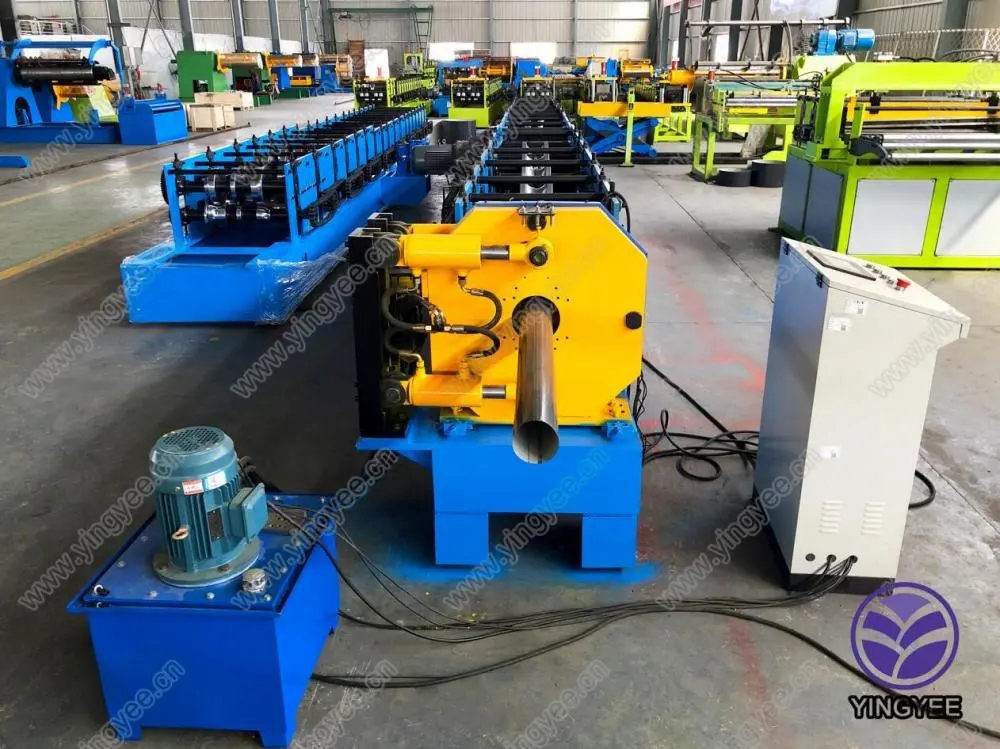
Roof Tile Roll Forming Machine Revolutionizing the Roofing Industry
In the ever-evolving construction industry, efficiency and quality are paramount. One of the most significant advancements in roofing technology is the roof tile roll forming machine. This innovative piece of machinery has transformed how roof tiles are produced, providing manufacturers with a fast, cost-effective, and high-quality solution.
Understanding Roof Tile Roll Forming Machines
A roof tile roll forming machine is a specialized equipment that fabricates metal roofing tiles from coils of steel or other materials. The process begins with unwinding a coil of metal, which is then fed through a series of rollers. These rollers shape the metal progressively, turning it into roof tiles of various designs and thicknesses. The final product can mimic the appearance of traditional materials such as clay or slate, but with the benefits of metal's durability and longevity.
Key Features and Benefits
1. Efficiency and Speed One of the most significant advantages of roof tile roll forming machines is their efficiency. Traditional roof tile production methods often involve labor-intensive processes that can take considerable time and resources. In contrast, rolling forming machines can produce high volumes of tiles in a short period, significantly reducing labor costs and improving turnaround times for projects.
2. Customization The adaptability of roof tile roll forming machines allows for a wide range of designs, styles, and colors. Manufacturers can easily adjust the machine settings to achieve specific tile profiles or finishes, enabling them to meet customer preferences and market demands. This level of customization enhances the competitiveness of manufacturers in the roofing market.
3. Consistent Quality Roof tile roll forming machines produce tiles with consistent dimensions and quality, minimizing defects and ensuring uniformity. The controlled manufacturing process also ensures that every tile meets industry standards, leading to fewer complaints and increased customer satisfaction.

4. Durability and Longevity Metal tiles produced through roll forming are known for their durability. The materials used can withstand harsh weather conditions, resist rust, and have an extended lifespan compared to traditional roofing materials. This longevity makes metal roofing an attractive option for both residential and commercial properties.
5. Reduced Waste The roll forming process is efficient in material usage. Unlike traditional methods that may involve cutting and shaping excess material, roll forming generates significantly less waste. This characteristic not only benefits the environment by reducing material consumption but also lowers production costs for manufacturers.
Applications in the Roofing Industry
Roof tile roll forming machines are versatile and can be utilized across various applications. They are widely used in the residential sector for new home constructions and roof replacements. Additionally, they are increasingly adopted in commercial projects due to the growing demand for durable and sustainable roofing solutions.
Moreover, these machines cater to diverse architectural styles, from modern to classic, making it easier for builders and architects to find the right roofing solution for their projects. The aesthetic appeal of metal roofs, combined with their functional benefits, positions them as a popular choice in today’s construction market.
Conclusion
The roof tile roll forming machine represents a significant leap forward in roofing technology, offering unmatched efficiency, customization, and quality. As the construction industry continues to evolve, the need for high-quality, durable, and visually appealing materials will only grow. Investing in a roof tile roll forming machine not only gives manufacturers a competitive edge but also supports the broader trend towards sustainability and efficiency in construction.
In a world where time is money, and quality is crucial, adopting innovative technologies like roof tile roll forming machines can pave the way for a more efficient and productive roofing industry. Whether you are a manufacturer looking to enhance your production capabilities or a contractor seeking high-quality roofing solutions, the benefits of this technology are clear — it is a game-changer that promises to shape the future of roofing for years to come.